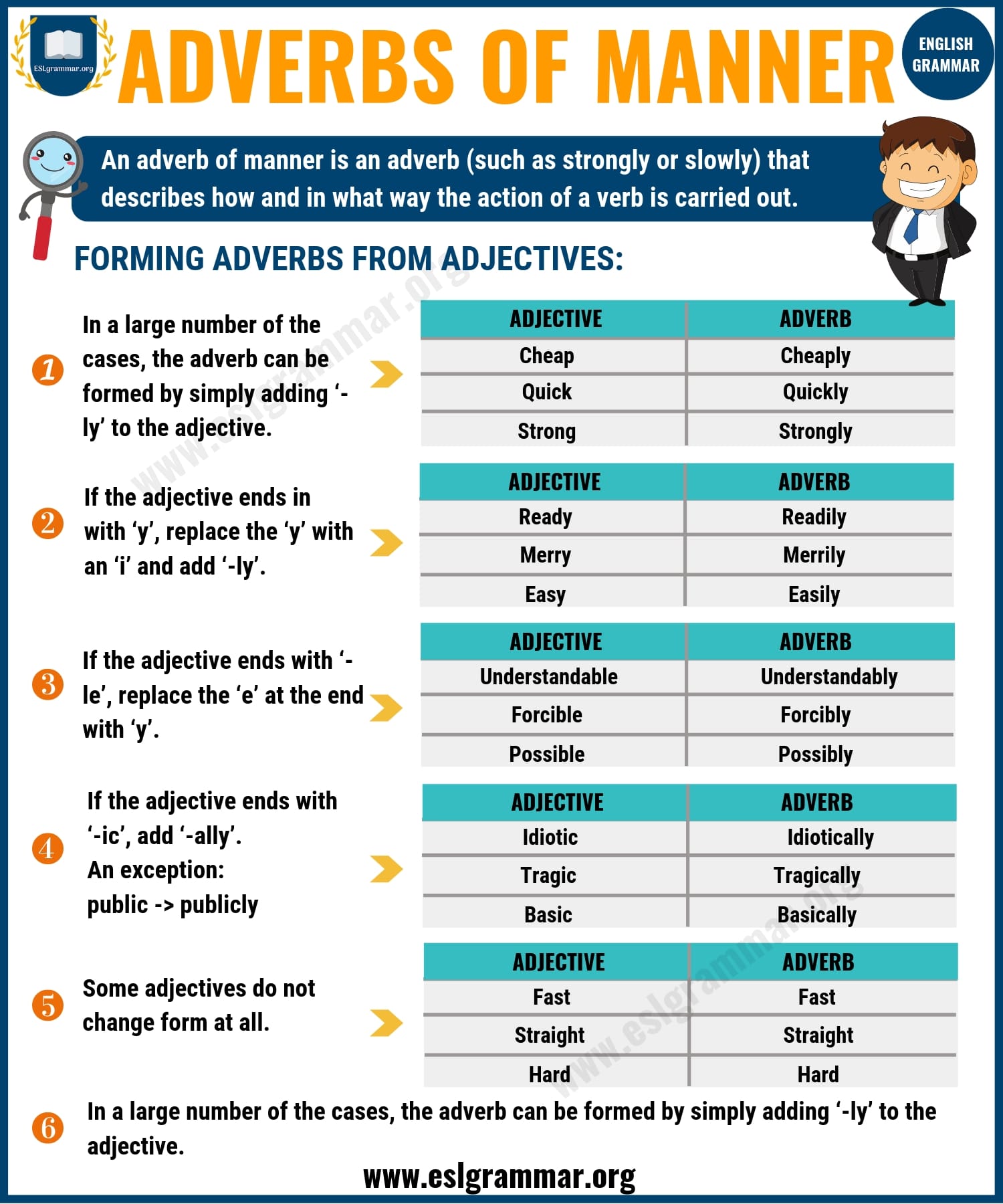Adverb Of Degree Examples Sentences | Enough as an adverb meaning 'to the necessary degree' goes after adjectives and adverbs. Adverbs of degree are used to provide information about the intensity of an action or adjective. They always appear before the adjective, verb, or other adverb they describe (except for the adverb enough, which we'll look at further on.) Adverbs of degree modifying adjectives. Enough as an adverb meaning 'to the necessary degree' goes after adjectives and adverbs.
An adverb is a word which is used to modify any part of speech except a noun or pronoun. It modifies the meaning of a verb, adjective, adverb or a sentence. I could scarcely hear her. (in this position they are also called 'intensifiers'). Adverbs of degree and quantity enhance an adjective, verb or another adverb by describing their intensity.

Enough as an adverb meaning 'to the necessary degree' goes after adjectives and adverbs. Adverbs of degree modifying other adverbs. Time adverbs describe how long and when an action occurred. They tell us the degree or extent to which something happens. Almostweekly i have an exam. I'm usuallyquickly finding the results. Enough as an adverb meaning 'to the necessary degree' goes after adjectives and adverbs. Adverbs of degree are used to modify verbs, adverbs and adjectives. Complete the sentence with a degree adverb. Adverbs of degree tell us about the intensity of something. Adverbs of degree and quantity enhance an adjective, verb or another adverb by describing their intensity. We use adverbs of degree to describe the degree (extent or amount) of an adjective, adverb or verb. The adverbs of degree give information about the intensity or degree of an action, adjective or another adverb.
Adverbs of degree are used to provide information about the intensity of an action or adjective. Adverbs of degree follow some simple grammar rules that we explain here. Degree adverbs are used to show the intensity or degree of something. Almost absolutely awfully* badly* barely completely decidedly deeply enough enormously entirely extremely fairly far fully greatly hardly highly how incredibly indeed intensely just. Here are some examples of adverbs of degree in the sentence.

Degree adverbs are used to show the intensity or degree of something. Express intensity with degree adverbs (modifying verbs, adverbs and adjectives); Adverbs of degree modifying adjectives. (in this position they are also called 'intensifiers'). Take a look at this sentence I ate quite quickly.(before another adverb). An adverb is a word which is used to modify any part of speech except a noun or pronoun. In the following examples, the adverbs of degree have been italicized for ease of identification. For example, they usually modify other verbs, adjectives. Adverbs of degree are usually placed before the adjective, adverb, or verb that they modify, although there are some it can be used both in positive and negative sentences. For example, adverbs can describe when (adverbs of time) or where (adverbs of place) something happens. Complete the sentences with the correct answer from a, b, c or d: Adverbs are words that function as modifiers of sentences, clauses or various elements of clauses.
They can provide a wide range of information. Almostweekly i have an exam. Adverbs of degree tell how much or to what extent. these adverbs are sometimes called intensifiers because they add intensity (either positive or notice how the adverbs of degree in the sentences below add intensity to the words they modify: Let us look at a few examples of how adverbs of degree or quantity are used in a sentence. They tell us the degree or extent to which something happens.

She was too excited to sleep. Adverbs of degree tell how much or to what extent. these adverbs are sometimes called intensifiers because they add intensity (either positive or notice how the adverbs of degree in the sentences below add intensity to the words they modify: Dogs don't usually walk backwards. Adequately, almost, entirely, extremely, greatly, highly, hugely, immensely, moderately, partially, perfectly, practically, profoundly, strongly, totally, tremendously, very, virtually etc. We can use not to form a negative with some adverbs of degree. Almost absolutely awfully* badly* barely completely decidedly deeply enough enormously entirely extremely fairly far fully greatly hardly highly how incredibly indeed intensely just. The adverbs of degree give information about the intensity or degree of an action, adjective or another adverb. As you will soon see, they are usually placed before the word they are modifying. Common adverbs of degree include: Click on a topic to learn more about. Very, too, totally, completely, so, etc. It modifies the meaning of a verb, adjective, adverb or a sentence. Compare your response to the.
Adverb Of Degree Examples Sentences: This box isn't big enough.
0 comments